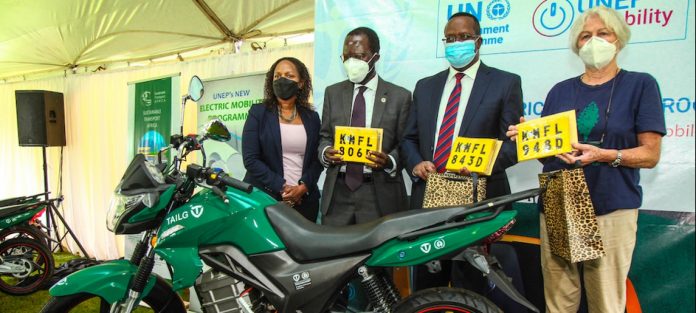Walking, cycling, picnicking in Nairobi’s lush Karura Forest, it is often hard to believe one is a mere two kilometres from the centre of one of Africa’s busiest cities. The woodlands are sprawling and serene, home to extraordinary biodiversity – indigenous plants and trees, 200 bird species, including Hawk and Africa Crowned eagles, owls, butterflies and colobus monkeys – which provide a sharp contrast to nearby fume-choked roads.
Even in this tranquil setting, though, the quiet can suddenly be pierced by the “putt-putt” of a motor bike as teams of rangers scoot through the forest, patrolling for poachers and watching over visitors.
But those ear-splitting motorbikes, and the noxious fumes they emit, will soon be a thing of the past.
This month, the United Nations Environment Programme (UNEP) launched an initiative to provide 99 electric motorcycles to four partners: Karura Forest, Kenya Power and Lighting company, Power Hive and Kisumu County. The pilot project, unveiled in the presence of government officials and business leaders, is part of a UNEP effort to support countries in combatting air pollution and climate change by shifting to electric vehicles.
By switching to electric vehicles, countries like Kenya can take a huge step towards making their cities greener and more liveable.
“An average motorcycle is ten times more polluting for the air per mile than a passenger car or light truck. UNEP is launching a robust fight against air pollution and energy conservation by unveiling the electric motorcycles. If this is not a revolution, kindly tell me what it is,” said the Governor of Kisumu County, Professor Peter Ayang’ Nyong’o, during the event.
“Shifting to electric bikes in Kenya, Rwanda, Uganda and elsewhere will reduce costs, air pollution and greenhouse gas emissions, as well as create jobs,” said Joyce Msuya, UNEP Deputy Executive Director.
The initiative in Kenya is supported by UNEP with funding from the International Climate Initiative of the German Ministry for the Environment. Read more…



